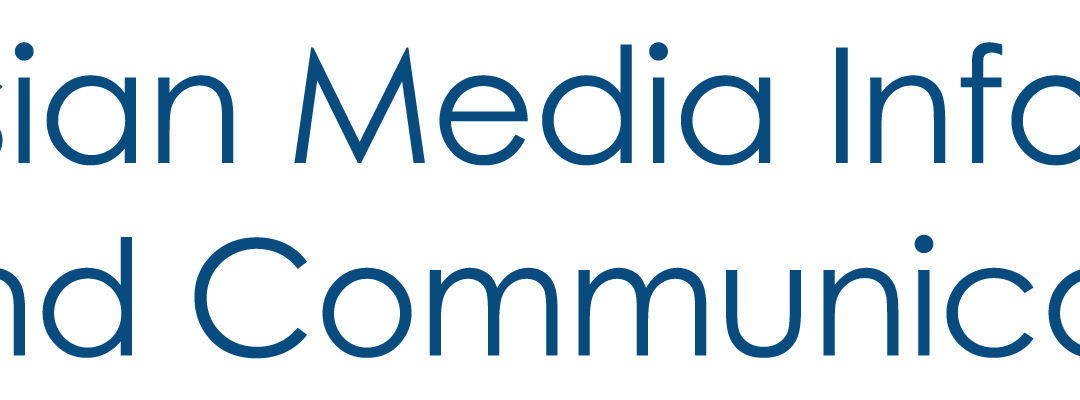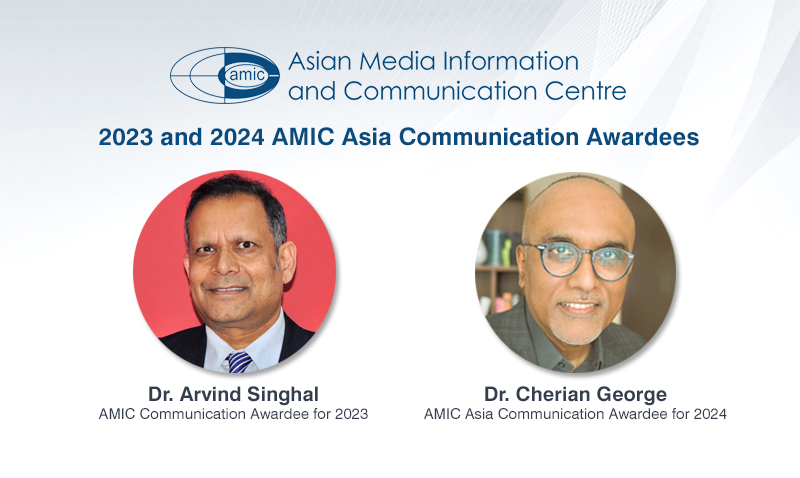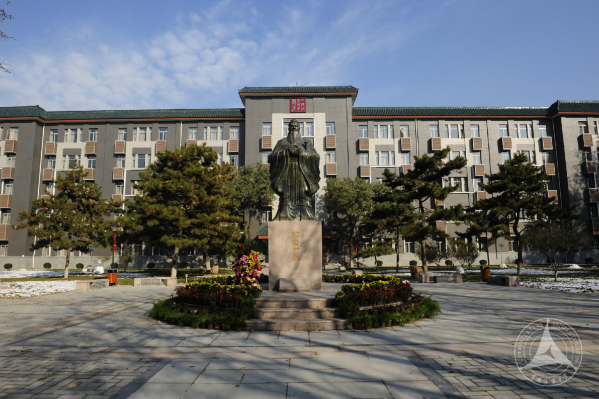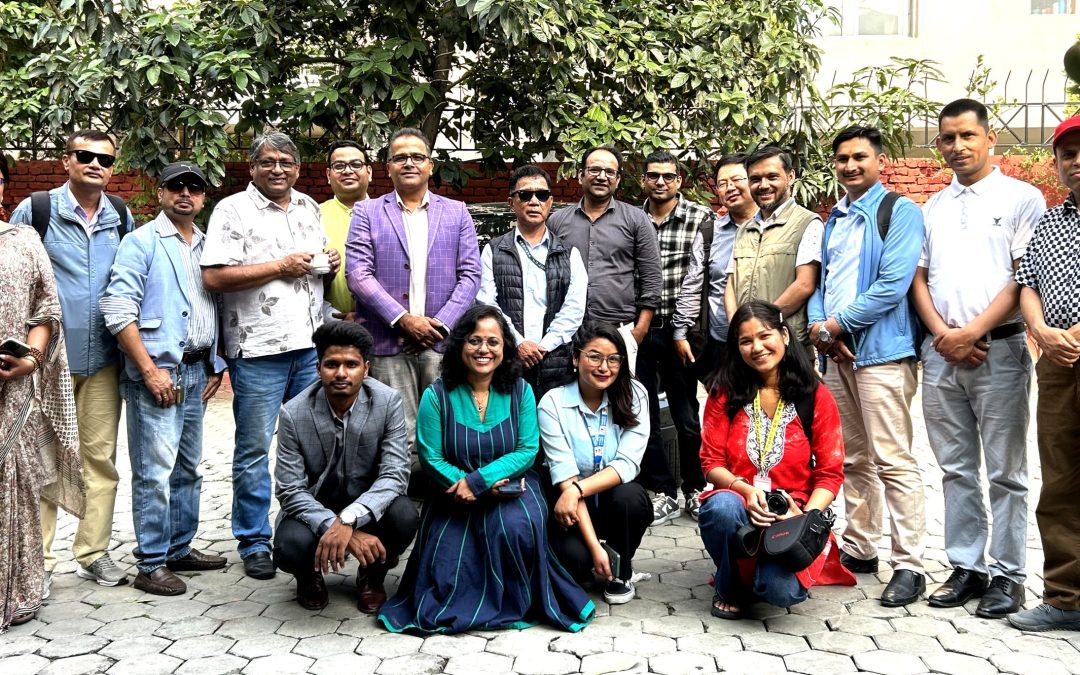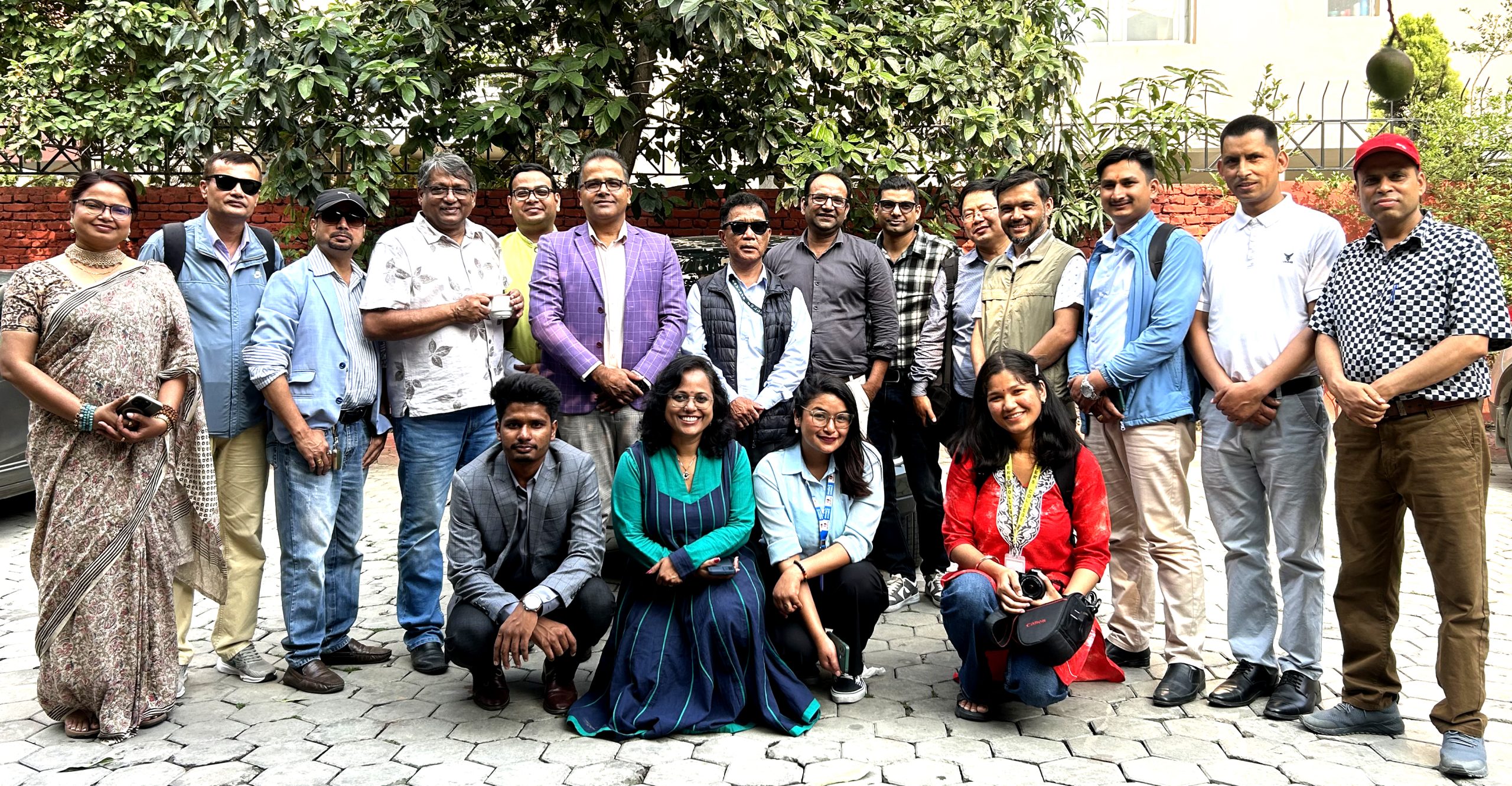Asia’s Best in AMIC
Asia’s Best in 30th AMIC Conference
Asia’s best were featured as keynote and plenary speakers and moderators in the 30th Annual Conference of the Asian Media Information and Communication Centre (AMIC). Two non-Asian public intellectuals, but with strong links to Asia, completed the list of plenary speakers and moderators. Below is the Who’s Who in the plenary sessions:
PROFESSOR SHAHBAZ KHAN is the Director of UNESCO Regional Office for East Asia and UNESCO Representative to the Democratic People’s Republic of Korea, Japan, Mongolia, and the People’s Republic of China.
SHOUXUN LIU is Vice President of the Communication University of China.
YAN SUI is Distinguished Professor of the Changjiang Scholars Program of the Ministry of Education of China, convener of the 8th Discipline Evaluation Group for Journalism and Communication under the Academic Degrees Committee of the State Council, Vice Chairman of the Academic Committee at the Communication University of China, Dean of the School of Journalism, and Editor-in-chief of Modern Communication.
FUTAO HUANG is a Vice Director and Professor at the Research Institute for Higher Education at Hiroshima University, Japan. He has significantly contributed to the field of the internationalization of higher education.
JANETTE MALATA-SILVA is the Vice Chancellor for Student Affairs at the University of the Philippines – Los Baños, and also serves as an Associate Professor in the Department of Humanities.
ROMYEN KOSAIKANONT is Director, Southeast Asian Ministers of Education Organization Regional Centre in Higher Education and Development.
MAYOR JEANNIE N. SANDOVAL is the Mayor of Malabon City, National Capital Region, Philippines and Chairman of the Board of Regents of the City of Malabon University (CMU). Some of her local government projects have received recognitions for innovation and social impact.
CHANDRABHANU PATTANAYAK is the Director of the Institute of Knowledge Societies, an interdisciplinary institute dedicated to research and education on the interface between modern technologies and traditional knowledge systems.
YUEZHI ZHAO is Humanities Chair Professor and Director of Research Center for Marxist Perspective on Journalism and Journalism Education Reform at Tsinghua University, China. She is also Professor Emeritus, School of Communication, Simon Fraser University, Canada, and a Fellow of Royal Society of Canada.
SAULE BARLYBAYEVA is with the Faculty of Journalism of the Al-Farabi Kazakh National University. In 2019, S.H. Barlybayeva was awarded the State Award of the Republic of Kazakhstan – Medal for Labor Valor and was awarded Best University Teacher of the Republic of Kazakhstan in 2007 and 2018.
KARLYGA MYSSAYEVA is an associate professor in the Journalism Department at Al-Farabi Kazakh National University in Kazakhstan. She had stints at Ohio University, a George Washington University and Oklahoma State University, and Strasbourg University in France.
FERNANDO dl. PARAGAS is the Dean of the University of the Philippines College of Mass Communication (UPCMC) and a Professor at its Department of Communication Research. Dr. Paragas is the Convenor of the Program on Higher Education Research and Policy Reform at the UP Center for Integrative Development Studies.
DAYA THUSSU is President of the International Association of Media & Communication Research (IAMCR). He is Professor of International Communication at Hong Kong Baptist University and a Senior Research Fellow at the Institute for Commonwealth Studies, University of London.
S M SHAMEEM REZA is a Professor of Mass Communication and journalism at the University of Dhaka. Besides his extensive contributions to the field of communication and media scholarship, he is known as a leading social advocate for democratization of community media, and communication for change.
GUY BERGER is Professor Emeritus, Rhodes University, South Africa; Distinguished Fellow Research ICT Africa; and DigiPol Fellow at the University of Liverpool. He was a senior director at UNESCO.
SADIA JAMIL is an Assistant Professor and Director of Research at the School of International Communications, The University of Nottingham in Ningbo, China. She is the Chair of the Journalism Research and Education Section of the IAMCR.
MOHAMMAD SAJJAD YASA is a war journalist, researcher, and writer renowned for his reporting and engagement with conflict zones, particularly in Afghanistan. Yasa was awarded the Wazir Mohammad Akbar Khan Memorial Medal in Afghanistan.
BIDU BHUSAN DASH is an Associate Professor and Acting Dean at the School of Mass Communication, Kalinga Institute of Industrial Technology (KIIT). He is a scholar of Communication Studies in South Asia.
DANILO ARAÑA ARAO is an associate professor of the Department of Journalism at the University of the Philippines College of Mass Communication (UP CMC). He is also a special lecturer of the Department of Journalism at the Polytechnic University of the Philippines (PUP). He is the editor of Media Asia.
DADANG RAHMAT HIDAYAT is the Dean of the Faculty of Communication Sciences of the Universitas Padjadjaran, Bandung, Indonesia. He served as the President of the Indonesian Communication Scholar Association (ISKI).
JACK LINCHUAN QIU is Shaw Foundation Professor of Media Technology, Chair, Wee Kim Wee School of Communication and Information, Nanyang Technological University, Singapore. Before joining NTU, he was a professor at the Chinese University of Hong Kong and National University of Singapore.
JOHN A. LENT is the first AMIC Asia Communication awardee in 2006. He taught journalism and mass communication in the United States of America and several Asian countries. Prof. Lent pioneered in the study of development communication and mass communication and popular culture, comic art, and animation, in Asia.
MIRA K. DESAI is Head, Department of Extension and Communication In-charge Head, Department of Food Science and Nutrition SNDT Women’s University, India
PROFESSOR PENG HWA ANG is the current chairman d’honneur of AMIC and was Chairman of AMIC from 2004 to 2013. He teaches at the Wee Kim Wee School of Communication and Information, Nanyang Technological University, Singapore. He was President of the International Communication Association in 2015, the first Asian so elected. He is currently editor of the Asian Journal of Communication.

